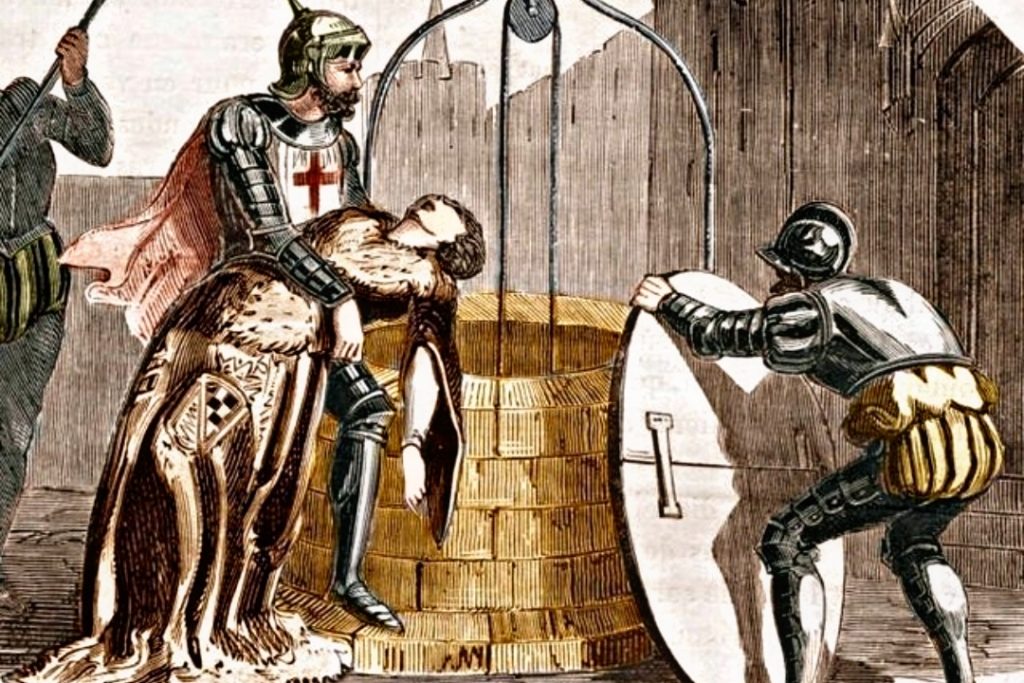The story of Gilles de Rais is one of history’s most chilling tales, a complex narrative that intertwines the life of a celebrated medieval knight with the horrifying allegations that turned him into a notorious figure. Known for his extraordinary wealth, military prowess, and cultural contributions, Gilles de Rais’ legacy is overshadowed by accusations of heinous crimes that have left an indelible mark on history.
This article delves deep into the life of Gilles de Rais, exploring his rise to prominence, his fall from grace, and the enduring mysteries surrounding his name. By examining historical accounts and modern interpretations, we can better understand why Gilles de Rais remains a subject of both fascination and horror.
Early Life of Gilles de Rais
Gilles de Montmorency-Laval, better known as Gilles de Rais, was born in 1405 into one of Brittany’s most powerful and noble families. Raised in opulence, he inherited vast estates and a significant fortune after the deaths of his parents when he was just a child.
Educated in the finest traditions of medieval nobility, Gilles was groomed for a life of leadership and chivalry. His family’s wealth and influence allowed him to engage in pursuits befitting a young nobleman, including military training and cultural refinement.
Gilles de Rais: The Knight and War Hero

In the early 15th century, France was embroiled in the Hundred Years’ War against England. Gilles de Rais distinguished himself as a military leader during this turbulent time, earning fame for his bravery and skill on the battlefield.
1. Alliance with Joan of Arc
One of the defining moments of Gilles de Rais’ military career was his association with Joan of Arc, the French peasant girl who claimed to be guided by divine visions. Gilles served as one of her trusted commanders, participating in critical battles, including the Siege of Orléans in 1429.
His contributions to Joan of Arc’s campaigns helped restore French morale and led to the coronation of Charles VII as King of France. This period cemented Gilles de Rais’ reputation as a heroic figure and loyal defender of the French crown.
2. A Knight of Extravagance
Gilles de Rais was also known for his lavish lifestyle. He spent extravagantly on grand castles, opulent ceremonies, and elaborate theatrical productions. His wealth allowed him to commission artistic works and surround himself with luxury, further enhancing his status as a Renaissance man of his time.
The Downfall of Gilles de Rais
Despite his celebrated achievements, the life of Gilles de Rais took a dark and sinister turn. By the mid-1430s, his fortunes began to dwindle due to reckless spending and poor financial management. Desperation for wealth and power drove him to explore occult practices, which eventually led to his downfall.
1. Involvement in Alchemy and the Occult
Historical accounts suggest that Gilles de Rais turned to alchemy and black magic in an attempt to restore his fading wealth. He reportedly sought the services of alchemists and sorcerers, hoping to uncover the secrets of transmuting base metals into gold.
This fascination with the occult alienated many of his contemporaries and contributed to his growing reputation as a man willing to defy religious and moral boundaries.
2. Accusations of Heinous Crimes
The most damning aspect of Gilles de Rais’ legacy revolves around the allegations that surfaced in 1440. He was accused of abducting, torturing, and murdering dozens—if not hundreds—of children.
Witnesses and co-conspirators testified that Gilles de Rais lured children to his castles under false pretenses, subjected them to unspeakable atrocities, and carried out elaborate rituals involving their deaths. These crimes were described in horrific detail during his trial, painting a picture of a man consumed by depravity.
The Trial of Gilles de Rais
In 1440, Gilles de Rais was arrested and brought to trial by the Church and the secular authorities. His trial was one of the most sensational cases of the medieval era, drawing widespread attention due to his status as a nobleman and war hero.
1. The Charges
The charges against Gilles de Rais included heresy, sorcery, and the murder of children. The court presented detailed accounts from witnesses, many of whom were servants or accomplices in his household.
2. The Confession
Under the threat of torture, Gilles de Rais confessed to the crimes, providing a gruesome account of his actions. His confession shocked the public and solidified his image as a monstrous figure.
3. The Verdict and Execution
Gilles de Rais was found guilty on all counts. He was sentenced to death by hanging and burning, a punishment that was carried out on October 26, 1440. His execution marked the end of one of medieval Europe’s darkest chapters.
The Legacy of Gilles de Rais
The story of Gilles de Rais continues to captivate historians, writers, and artists. His life raises questions about the nature of evil, the reliability of historical accounts, and the interplay between power and corruption.
1. Historical Debate
While the crimes attributed to Gilles de Rais are horrifying, some historians have questioned the veracity of the accusations. They argue that the trial may have been politically motivated, with his enemies using the charges to dismantle his power and claim his estates.
Others point to the detailed confessions and corroborative testimonies as evidence that Gilles de Rais was indeed guilty of the atrocities for which he was condemned.
2. Cultural Impact
Gilles de Rais has inspired numerous works of literature, theater, and art. Some interpretations depict him as a tragic figure corrupted by his own ambitions, while others portray him as a cautionary tale of unchecked power and moral decay.
3. Connection to Bluebeard
One of the most intriguing aspects of Gilles de Rais’ legacy is his alleged connection to the fairy tale Bluebeard, a story about a wealthy man who murders his wives. Many believe that the tale was inspired by the life and crimes of Gilles de Rais, further cementing his place in popular imagination.
Why Gilles de Rais’ Story Still Resonates
The tale of Gilles de Rais endures because it touches on universal themes of heroism, downfall, and the darker aspects of human nature. His transformation from a celebrated knight to a condemned criminal serves as a stark reminder of how power and privilege can corrupt even the most revered individuals.
As historians continue to revisit the story of Gilles de Rais, they grapple with the complexities of his character and the broader social and political forces that shaped his life. Whether viewed as a tragic figure or a symbol of ultimate evil, Gilles de Rais remains a compelling figure in the annals of history.
In conclusion, the name Gilles de Rais evokes a spectrum of emotions—from admiration for his early achievements to revulsion at the crimes attributed to him. His story is a haunting chapter in medieval history, one that continues to provoke discussion and debate among those who seek to understand the enigmatic man behind the legend.

